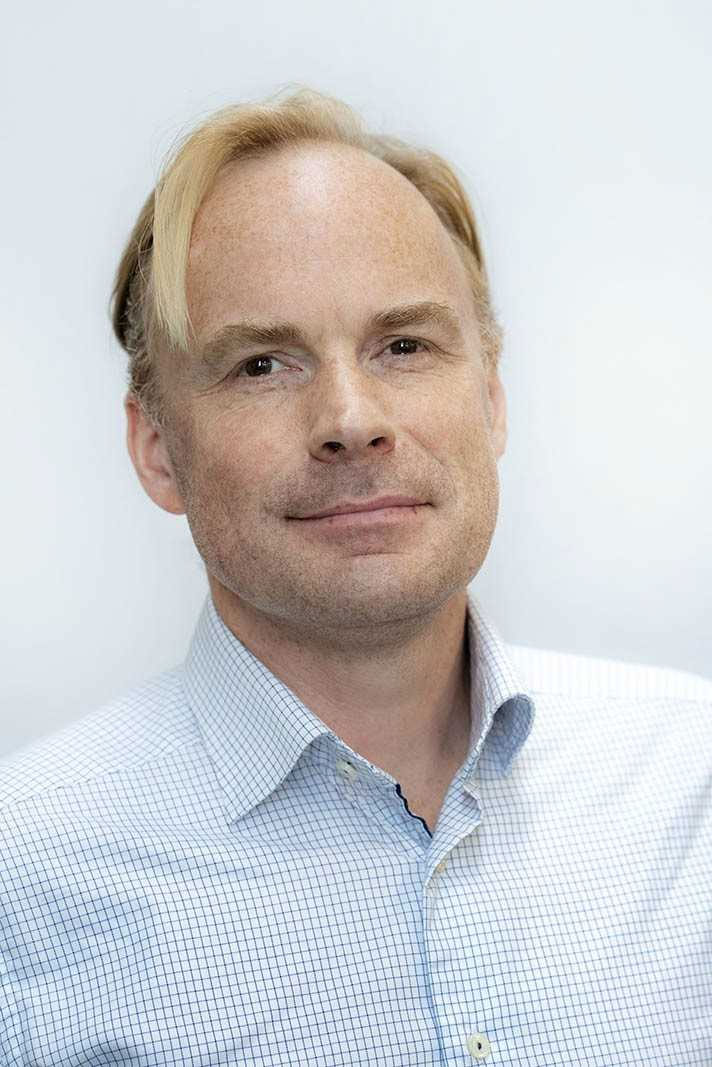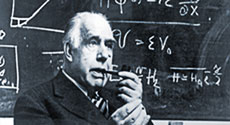Niels Bohr Lecture by Alexey Kimel, Radboud Universiteit
Title: Ultrafast magnetism – terra incognita beyond the conventional approximation
 Abstract: While magnetism is essentially the strongest quantum mechanical phenomenon, modern descriptions of magnetization dynamics and magnetization reversal rely on thermodynamics and the corresponding approximations.
Abstract: While magnetism is essentially the strongest quantum mechanical phenomenon, modern descriptions of magnetization dynamics and magnetization reversal rely on thermodynamics and the corresponding approximations.
However, recent experiments show that ultrashort (sub-100 ps) stimuli push magnetic media into a strongly non-equilibrium state, where the conventional description of magnetic phenomena in terms of equilibrium thermodynamics is no longer valid and the experimentally observed ultrafast magnetization dynamics challenges existing theories of magnetism.
For instance, while according to thermodynamics and simple intuition, heat can only destroy magnetization, we have observed that an ultrafast (sub-100 ps) heat pulse can cause magnetization reversal without any magnetic fields.
In this lecture, I will cover these recent insights and speculate on the future of ultrafast magnetism — both as a platform for technological innovation and as a frontier in fundamental research. In particular, I will discuss the exciting opportunities emerging from studies of antiferromagnets - the largest, least explored, and arguably most intriguing class of magnetic materials, discovered only in the 20th century.
About the speaker
Alexey Kimel obtained his PhD from the Ioffe Institute (St. Petersburg, Russia) and joined the Institute for Molecules and Materials (IMM) at Radboud University as a postdoctoral researcher in 2002.
He was subsequently appointed Assistant Professor in 2007, Associate Professor in 2013, and Full Professor in 2017.
He pioneered ultrafast spin dynamics in antiferromagnetic materials [PRL89, 287401 (2002), Nature 435 655–657 (2005)] and his works in a large extent defined the development of ultrafast magnetism during the last two decades.
He is a co-inventor of ultrafast all-optical magnetic recording [PRL99, 047601 (2007)] and inertia of spins in antiferromagnets [Nature-Physics5, 727–731 (2009)], as a recognized world-leader in the field he obtained several prestigious research grants (Veni2004, Vidi2006, Vici2017, ERC-SG2010, Russian MegaGrant-2013, ERC-AG2022).
Starting from September 2025, he serves as the Research Director of the Institute for Molecules and Materials.
Coffee, tea and cake will be served outside Margrethe Bohr Salen at 14:45.
 Niels Bohr Lectures er en engelsk-sproget foredragsrække på Niels Bohr Institutet med kendte forskere fra hele verden.
Niels Bohr Lectures er en engelsk-sproget foredragsrække på Niels Bohr Institutet med kendte forskere fra hele verden.
Foredragene holdes cirka 10 gange om året og er offentlige. De er for studerende og ansatte ved Niels Bohr Institutet samt andre med interesse for at høre om videnskabelig forskning i verdensklasse. Foredragene holdes på et ikke-teknisk niveau, hvor de kan forstås af alle med en baggrundsviden, der svarer til de første år på fysikstudiet.
Tidspunkt og sted: Hvis intet andet er anført, finder foredragene sted kl. 15.15 i Margrethe Bohr Salen, Niels Bohr Bygningen, 2200 København N. Kaffe og kage serveres en halv time inden foredraget starter.
The lectures are public and held about 10 times a year. The lectures are for students and staff at the Niels Bohr Institute and others interested in worldwide scientific research. The lectures are held on a non-technical level where they can be understood by anyone with a background similar to the first year of physics study.
Time and place: Unless otherwise specified, the lectures take place at. 15.15 in Margrethe Bohr Salen, Niels Bohr Bygningen, 2200 Copenhagen N. Coffee and cake will be served half an hour before the lecture starts.
